Helping your kid socialize
Parents are the first teachers of how kids should socialize; most kids consider their parents as a favorite person and their first playmate. They delight at the sight, touch and voice of their parents, with the parents teaching them how to interact familiarly and enjoy the company of others. So parents are the first step in the development of social skills.
It would be best to understand how babies develop social skills:
The moment a baby is born, he/she responds to everyone, though his/her first year interactions is mostly with you as one focuses on developing skills like grabbing, pickling up things, and walking.
Your baby picks language skills much before he/she starts babbling; this is done when you read and speak to him/her. Around the age of 2, he/she starts playing side by side with other children and develops social skills through trial and error.
At first most babies are not able to share their toys with others; however soon he/she learns to be a better playmate by empathizing with others. The age of 3 is the right age when your baby starts making friends.
Stages of development of social skills:
Human are social by nature; your baby will love to be touched, held, talked to, cooed and smiled at. Your baby at one month begins to experiment making faces at you, mimicking your gestures; he/she will also stick out one’s tongue if you do so.
During the same time he/she will love to listen to and learn sounds made by you; eye contact could help here. Your baby will start crying, cooing and babbling- all necessary steps to language development.
Your baby becomes most observant at 3 months and would thrill you by his/her first genuine smile. He/she would soon gain the expertise of sending smiles your way and gurgling at the same time.
When your baby is 4 months, he/she becomes open to new people and may also squeal or greet them with glee. But your baby feels bonded and no one can replace his/her dad or mum. Encourage the babbling of your baby by talking to him/her even when you are doing simple chores or activities around the house.
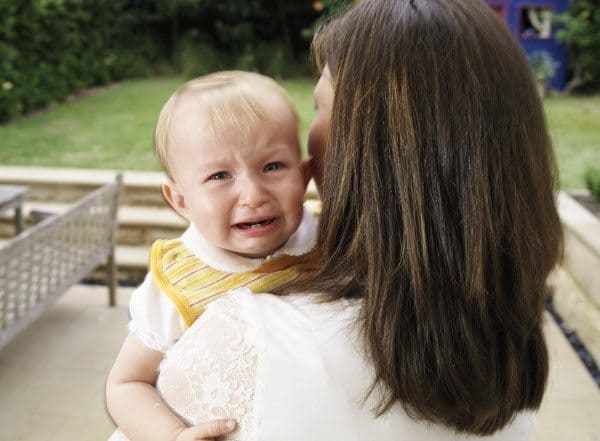
At 7 months your baby can play with his/her own set of toys when put near another baby, but he/she has not picked up the skill to play with other babies. He/she may though show a fleeting interest in other babies with the only interactions being to grab, glance, smile, coo or imitate the other’s sounds. Your baby may prefer family members to outsiders and may soon be afraid of unfamiliar people or suffer from stranger anxiety.
Your baby of 1 year may cry or get anxious when you leave his/her side or leave him/her with someone else; many babies also undergo separation anxiety that reaches its peak between the ages of 10 to 18 months. You will find that your baby is calm in your presence and distressed when you are not around.
Your toddler between 13 to 23 months shows a lot of interest about what is happening around him/her; as he/she learns to talk and communicate he/she will also make friends with others, especially with kids of his/her age or older. Your toddler at this stage is very protective of his toys and shows the least inclination to share.
It is also between these ages that your toddler spends time watching his/her friends and imitating them. He/she shows strong signs of being independent by throwing a tantrum when you ask him to not do something or not holding your hand while walking on the street.
You will observe that your baby between 2 to 3 years is very self-centered and also assumes others think the same way. There is no cause to worry as soon he/she will learn to share, take turns and may also end up making 2 or 3 good friends.
As your child grows older, he/she will start enjoying other people, especially children of their age. He/she will soon learn about interaction in social situations and to enjoy playing with his/her playmates. You will also find that your child soon learns how to empathize with other children, the fun with playmates and how to develop true lasting friendships.
How you can help your kid to socialize:
a) Spend quality time with your baby during the first few months; this will not only make him/her enjoy your attention, but he/she will also enjoy making faces with you.
b) Let your toddlers enjoy all the fuss and attention by visitors young and old; invite friends and relatives over.
c) Your child may develop stranger anxiety around 7 months of age; do not get embarrassed or upset.
d) Some babies cry when they are in a relative’s arm; begin the slow desensitization process by first keeping him/her in your arms while the other person is around and then have the individual talk and play with your child while you hold him. Next you could hand over your baby to the person for a short time and stay close; this could be followed by leaving the room for a short period. If this does not work try to do it sometime later.
e) You could also help your baby get over stranger anxiety by going in and out of the room; this would make your baby feel though you may go out you will soon come back.

f) Arrange for regular play dates with other kids; ensure you have a lot of toys because most kids would not be up to sharing it with one another. You could also sign your kid up for playgroups or classes that gives him/her a chanced to mix with other kids and learn how to make friends.
g) You could set a good example for your self-centered 2 or 3 year old kid by using words like, ‘please’ and ‘sorry’ and complimenting for a job well done. Share your magazine or dessert.
Causes for concern:
There is a cause for concern if your baby does not interact with anyone, except you and your spouse; if he/she doesn’t show interest in also interacting with you, consult a doctor.
There is a cause of concern if your toddler of 1 to 3 ages is unfriendly and always bites, pushes or beats other children over toys. Such behavior arises out of fears or insecurities and need to be addressed by a doctor.
Image Courtesy: Google
Take the next step toward your goals
Share your requirement and find the best care providers in your area
-
Looking for a caretaker’s job? Build your profile and get in touch with families in your vicinity.
-
Discover nannies, babysitters, cooks, housekeepers, pet sitters, and elder care under one roof.
-
Get all the support you need to run a successful care center.
-
Search for appropriate centers near you depending on your needs.
Care Corner Insights: Blog Library
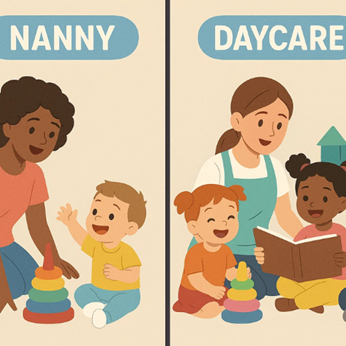
Nanny vs. Daycare in Naperville, IL: What Works Best for Indian Working Couples?
Hey Naperville Parents! Balancing work and family life is no small feat—especially for Indian working couples trying to juggle careers, household responsibilities, and parenting. One of the biggest decisions you’ll face? Choosing between a nanny or
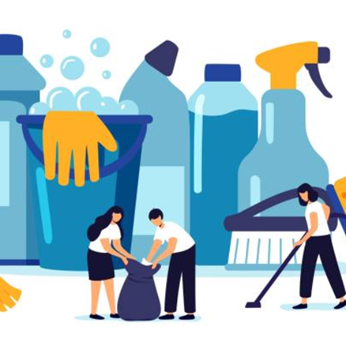
Housekeepers in Sugar Land, TX: Deep-Cleaning Checklists for Indian Homes
Housekeepers in Sugar Land, TX: Deep-Cleaning Checklists for Indian Homes Indian cooking = flavor + spices + love… but also oil splatters and stubborn stains. Time to reset! Degrease stovetops, chimneys, and exhaust fans. Scrub countertops, tiles,

12 Easy After-School Snack Ideas for Kids Who Get Hungry Quickly
School’s out, and the hunger hits hard! If your little ones come home ravenous and ready to raid the kitchen, you’re not alone. After-school snack time is prime time for refueling, recharging, and maybe even sneaking in a little nutrition. So here ar

Vegetarian Home Cook Services in Sunnyvale, CA: North & South Indian Meal Prep for Busy NRIs
Between work, family, and daily responsibilities, finding time to cook fresh meals can be difficult. That’s when a vegetarian home cook service in Sunnyvale makes life easier—bringing authentic North and South Indian dishes straight to your table. T

Hiring a Live-In Nanny in Plano, TX: A Practical Guide for NRI Households
For NRI families living in Plano, TX, raising children while managing work and household responsibilities can feel overwhelming. Many parents find that hiring a live-in nanny provides the right balance of support, convenience, and cultural comfort. U
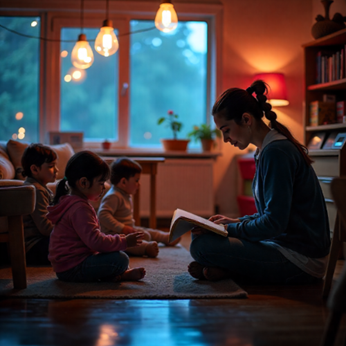
Daycares in Fremont, CA for Indian Toddlers: Curriculum, Food Policies & Waitlists
You’ve probably met them — the parents at the park chatting about Montessori vs. play-based learning while handing their toddler a homemade paratha. The ones who ask every daycare in Fremont if they serve vegetarian meals. And yes, the ones who have
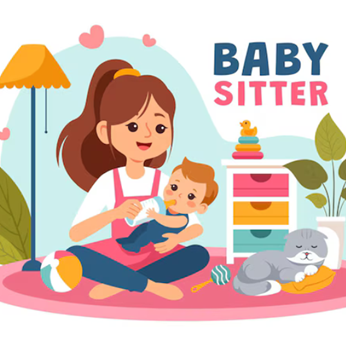
Babysitters in Jersey City, NJ for NRI Parents: Last-Minute, Weekend & Evening Options
You’ve probably seen them — the parents juggling grocery bags in one hand and a phone call to grandma in India in the other, while trying to keep their toddler from running into the road. The ones who cancel dinner plans because the babysitter bailed
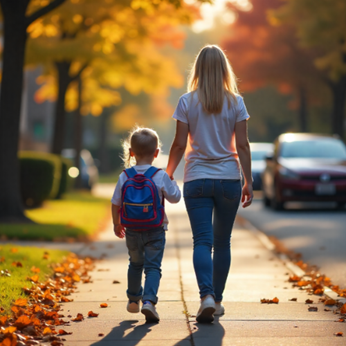
Best Nanny Services in Edison, NJ for Indian Families: Costs, Language, and Cultural Fit
Edison, NJ, is home to one of the largest Indian communities in the U.S., and finding a nanny here often means looking for more than just childcare skills. For Indian families, cultural understanding, language fluency, and traditional values play a b

What Is Helicopter Parenting? How It Affects Children and Ways to Avoid It
You’ve probably seen them. The parents at the playground who shadow every move, wiping invisible germs off the slide before their child touches it. The ones who fill out job applications for their teens. And yes, the ones who email college professors
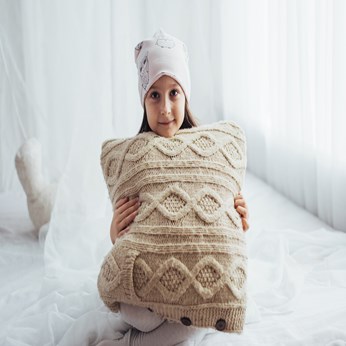
Are Weighted Blankets Safe for Children? Pros and Cons Explained
Weighted blankets have become a cozy trend in recent years. From helping adults sleep better to calming anxiety, they’ve earned a spot in many households. But when it comes to kids, especially the little ones, parents often ask: Are weighted blankets